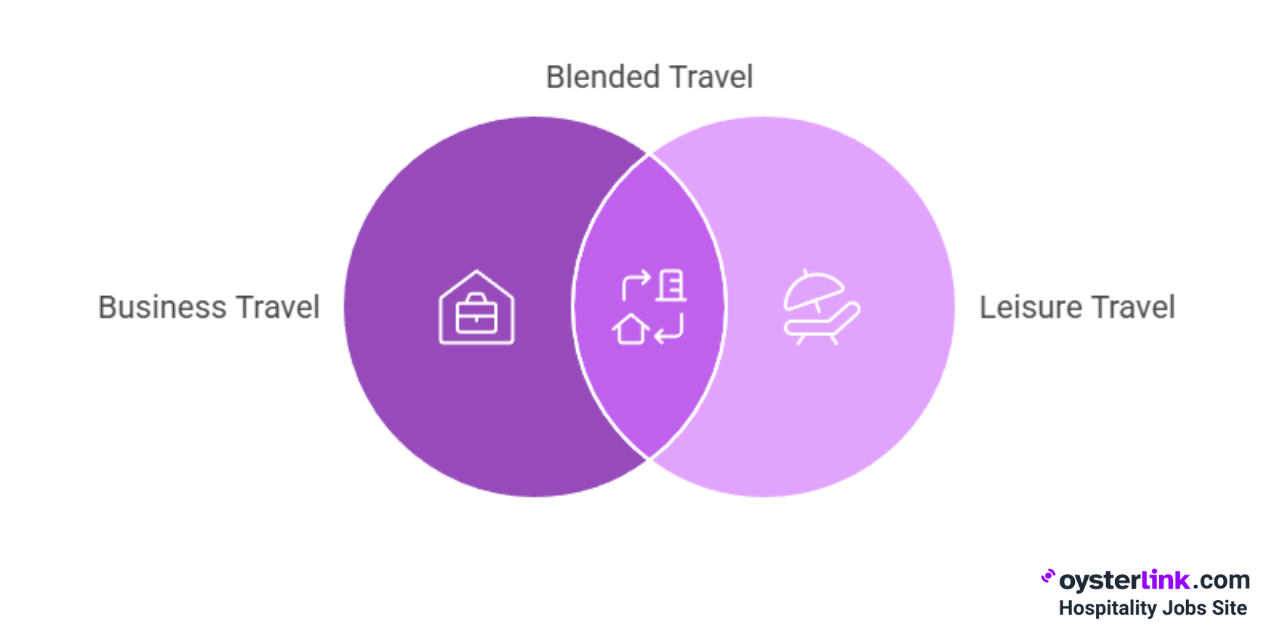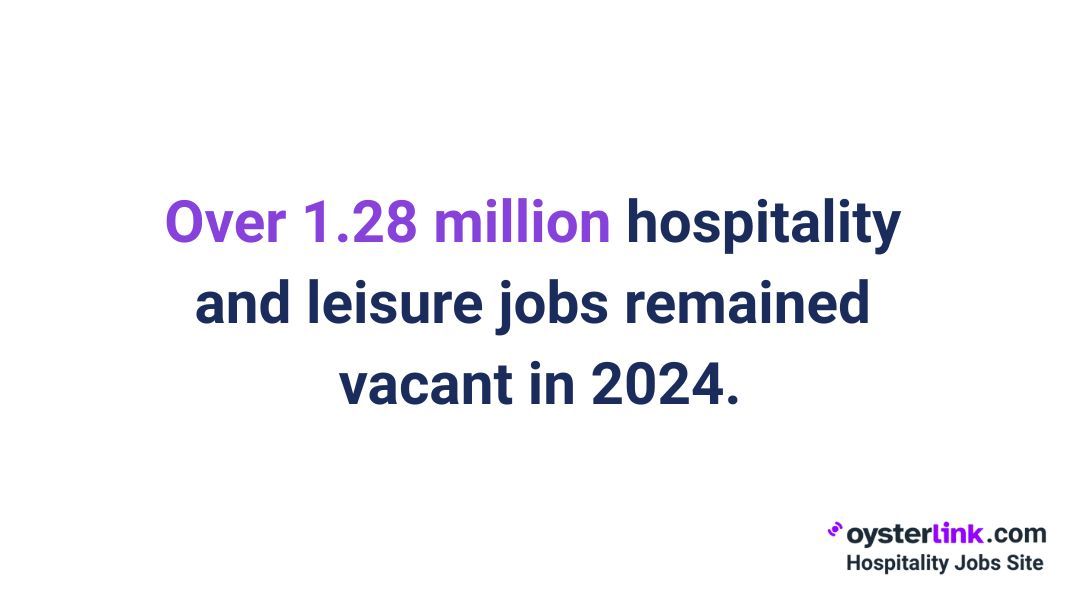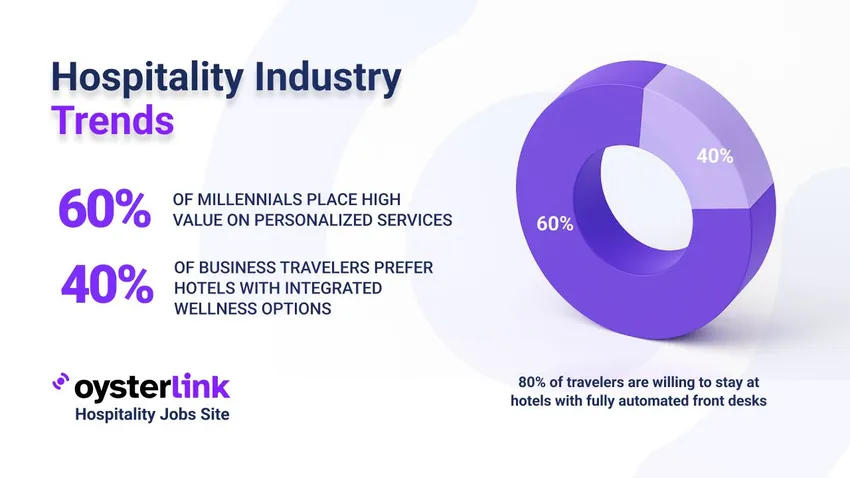Hospitality Industry Trends in 2025: Key Takeaways
- Traveler demand for personalized experiences and advanced tech is driving heavy investment in AI and automation.
- Sustainability and wellness are key priorities, leading to eco-friendly initiatives and health-focused amenities.
- Luxury and blended travel trends are reshaping offerings and opening new revenue opportunities.
- Staff shortages are prompting increased automation, better employee support and enhanced training to maintain service quality.
2025 is truly a pivotal year for the hospitality industry, blending innovative technology, rising traveler expectations and a focus on sustainability.
As the market soars toward an expected $313.87 billion by 2030, driven by increased disposable income and the digital transformation of the booking experience — hospitality trends are evolving faster than ever.
Let’s explore the top 10 trends shaping hospitality this year and what they mean for both providers and guests.
1. Hyper-Personalized Guest Experiences in Hospitality
Today’s traveler desires more than just a standard experience; they crave unique and personalized interactions that resonate on a personal level.
Hospitality businesses are responding by employing AI, machine learning and data analytics to customize offerings in remarkable ways.
Imagine a hotel where your room preferences for temperature, lighting and amenities are set before you arrive or a restaurant that suggests dishes based on your past dining choices and nutritional preferences.
This hyper-personalization extends beyond mere preferences to involve tailored communications, such as personalized recommendations for local activities or exclusive offers crafted to match individual tastes.
With studies showing that 60% of millennials prioritize such personalized experiences, the hospitality industry is making significant strides in this area, fostering deeper connections and boosting guest loyalty.
2. Hospitality Technology Trends: Automation, AI, and Smart Services
Integrating technology into hospitality operations has become essential for meeting modern guest expectations.
The industry has experienced a dramatic shift with the widespread adoption of smart technologies that enhance guest experiences while increasing operational efficiency.
Hotels now commonly offer mobile check-in and digital room keys, allowing guests to skip traditional front desk procedures and go directly to their rooms.
AI-driven Concierge bots are transforming guest services by providing instant, personalized assistance — an approach that aligns with the fact that nearly 80% of travelers are willing to stay at hotels with fully automated front desks.
This move toward automation extends beyond hotels into restaurants, where robot Servers, automated cooking systems and self-service kiosks are streamlining operations.
These technologies not only reduce wait times but also create a more seamless and exciting dining experience for guests.
3. Sustainable Hospitality Practices: Guest Preferences
Sustainable practices have evolved from admirable options to indispensable commitments in the hospitality sector.
Both hotels and restaurants are increasingly investing in eco-friendly initiatives, such as using renewable energy sources, implementing smart water management systems and adopting waste reduction policies like composting and zero-waste programs.
Many properties are seeking certifications, like LEED or Green Globe, to validate their environmental efforts. This commitment resonates strongly with guests, as over 73% of global travelers express a preference for eco-conscious accommodations.
Restaurants are adopting similar strategies by offering locally sourced, sustainable menu options. This approach appeals particularly to Millennials and Gen Z, who favor health-conscious dining experiences with minimal environmental impact.
4. Wellness Trend in Hospitality
The emphasis on wellness within hospitality has expanded significantly, influenced by an increased focus on health and self-care.
Beyond traditional fitness centers, hotels are incorporating comprehensive wellness packages that include nutritious, farm-to-table dining options, meditation zones and mental health-focused spa treatments.
Health-conscious elements such as sleep-enhancing bedding and yoga sessions are becoming standard, appealing to guests who prioritize physical and mental well-being.
This trend is particularly pronounced among business travelers, 40% of whom prefer hotels with integrated wellness options.
By aligning with the global wellness movement, hospitality providers not only enhance guest satisfaction but also differentiate themselves in a competitive market.
5. Hospitality Retail Trend: Turning Hotels into Lifestyle Destinations
The transformation of hotels from mere accommodation providers into comprehensive lifestyle destinations is significantly driven by the rise of hospitality retailing.
Hotels are expanding their services to include curated retail experiences, offering guests access to local crafts, luxury products and exclusive merchandise.
Some properties extend their retail through online platforms, allowing guests to purchase items even after their stay. This trend enriches the guest experience by promoting local culture and contributing additional revenue streams.
By offering unique shopping opportunities, hotels position themselves as integral components of guests’ lifestyle choices, elevating the traditional idea of hospitality to encompass diverse and immersive experiences.
6. Flexible Booking and Payment Options in Hospitality
The economic landscape's uncertainty, coupled with shifting consumer behavior, has prompted hospitality businesses to adopt more flexible payment and booking methods.
Guests now enjoy options ranging from digital wallets to buy-now-pay-later schemes, making transactions more accessible and convenient.
Hotels and restaurants are responding with flexible cancellation policies and pay-at-arrival options to accommodate both planned and spontaneous travel and dining decisions.
With 66% of Gen Z adults and 64% of Millennials willing to pay extra for these flexible options, there is a strong demand for greater control. This reflects a wider need for convenience during the booking process.
This trend is not merely about financial convenience; it represents a broader shift towards customer-centric hospitality services that prioritize guest preferences and peace of mind.
7. Luxury Hospitality Trend
Luxury travel is experiencing a renaissance, driven by a demand for experiences that are both exclusive and deeply personal.
Modern luxury travelers seek more than opulent surroundings; they desire unique experiences that create memorable narratives.
This could involve anything from bespoke adventure tours and exclusive cultural immersions to opulent underwater suites.
With the luxury market expected to surpass $166 billion globally in 2025, the focus is shifting from material comforts to creating highly curated, immersive journeys.
Travelers are eager for authentic and Instagram-worthy moments — whether it’s a private helicopter tour over scenic landscapes, personalized safaris or exclusive access to cultural sites.
This trend reflects a broader desire among affluent guests to seek meaningful, one-of-a-kind experiences that not only satisfy their sense of adventure but also allow them to showcase their extraordinary travels on social media.
8. How Hospitality Is Supporting Blended Travel Trends
The traditional boundaries between business and leisure travel are blurring, giving rise to the increasingly popular phenomena of "workations" and "bleisure" trips.
The remote work revolution, accelerated by recent global shifts, has enabled professionals to extend their stays and combine work commitments with leisure activities.

Hotels and resorts have responded by creating dedicated co-working spaces, outfitting rooms with high-speed internet and offering amenities that support productivity — like private meeting rooms or business centers.
Simultaneously, leisure options such as wellness programs, outdoor tours and cultural excursions are easily accessible, encouraging longer stays.
This seamless integration allows travelers to enjoy a more flexible, balanced experience, and provides hospitality providers with new revenue opportunities through longer stays and diversified service offerings.
9. Staffing Trends in Hospitality
The industry continues to grapple with staffing shortages — an issue highlighted by a 2024 survey where 67% of hospitality businesses reported staffing challenges, and over 1.28 million hospitality and leisure jobs remained vacant.

To overcome these hurdles, many companies are turning to technological innovations, such as intelligent automation in scheduling, booking management and guest services, to do more with fewer staff members.
These tools not only improve efficiency but also reduce operational costs.
At the same time, recognizing that engaged and satisfied employees lead to better guest experiences, organizations are investing heavily in workforce well-being.
They are offering mental health support, physical wellness programs and initiatives that promote work-life balance.
Continuous training is also essential — upskilling staff in digital tools and customer service to ensure they can deliver high-quality, consistent experiences despite the industry’s increasing reliance on technology.
Ultimately, building a motivated, skilled workforce is crucial for maintaining high service standards and staying competitive in a rapidly evolving industry.
10. Health and Safety in Hospitality in 2025
Ensuring guest health and safety remains at the forefront of hospitality innovation.
Across hotels, restaurants, cruise ships and event venues, new protocols and technologies are being adopted to minimize risks.
Contactless check-in and digital menus reduce physical contact, while enhanced sanitation procedures ensure a hygienic environment.
Some establishments are exploring the use of UV sterilization and air filtration systems to improve indoor air quality.
How Hospitality Businesses Can Adapt to 2025 Trends Effectively
To stay competitive and relevant in an industry that’s always changing, it’s important for hospitality businesses to pay close attention to shifting customer expectations, new technologies and market conditions.
However, attempting to adopt every new trend isn’t practical or sustainable.
Instead, adopting a thoughtful and strategic approach — carefully assessing what aligns with your unique business and goals — is essential.
Here are some steps to help you navigate that process:
- Gather and analyze guest feedback from reviews, surveys, interviews and social media to find what’s missing and where you can improve.
- Attend industry events like conferences, workshops and webinars to stay updated on the best practices and current trends in the hospitality industry.
- Read industry reports and publications to learn about new trends and technology in the hospitality industry.
- Talk to your team regularly — through team meetings, one-on-one feedback and suggestion boxes — to get insights on guest preferences and staff ideas.
- Use internal data and compare your performance to competitors to spot gaps and opportunities for growth.
- Study customer behaviors and preferences and watch what competitors are doing to understand what’s changing in the industry.
- Work with industry peers, suppliers and partners to review the market and find new ways to improve and stand out.
Once you identify a trend that seems promising, approach it with a test-and-learn mindset. Define clear goals or hypotheses, choose appropriate methods for testing and establish metrics to evaluate success.
Measure outcomes carefully, learn from each experiment and keep refining your approach. This way, new ideas can be effectively implemented and truly contribute to your growth.
Methodology: How We Identified 2025’s Top Hospitality Trends
This analysis synthesizes information from recent industry articles, reports and expert insights to identify key trends influencing the hospitality industry in 2025.
Specifically, insights were drawn from:
- The Business Research Company’s “State of the Hospitality Global Market Report”
- A survey reported by Hotel Management indicating that 80% of travelers prefer automated and tech-savvy experiences
- The National Restaurant Association’s materials on macro trends such as sustainability, health and variety in dining
- Statista data on how young US consumers are willing to pay more for flexible booking options
- Warm Welcome Magazine’s discussion on wellness’s role within hospitality
- The American Hotel & Lodging Association’s survey on staffing shortages
- The U.S. Bureau of Labor Statistics’ employment reports detailing current vacancies and workforce challenges









Loading comments...